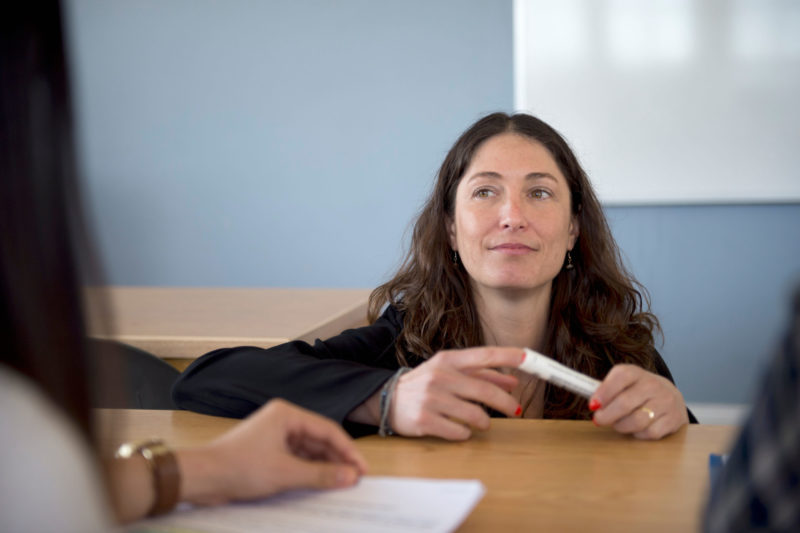Aprender a dudar es aprender a pensar (‘Learning to doubt is learning to think’). -Octavio Paz
In March this year, school life as we know it shuddered to a halt, and as we write, when and under what guise it will fully return remains unclear. Over the past few months, teachers and students will have experienced a range of emotions: fear, relief, anger, acceptance, sadness and confusion (we’re certainly feeling this last one at the moment). Of course, our first thoughts on a return to school focus primarily on the possible measures needed to maintain the health and well-being of all who are in it.
Beyond this, as professionals, we are also eager to make sure that the students we teach, particularly those who are approaching exam age, are able to make the sustained progress they need to fulfil their potential. To achieve this, we will need to embrace the uncertainty of the situation we find ourselves in and see it as an opportunity to think, innovate and create.
Some key points for language teachers to consider are discussed below. How many are likely to make it onto the agenda of your future departmental meetings?
1. Managing exam classes
The cancellation of GCSE and A-level exams seemed unthinkable three months ago, but here we are, and attention naturally now turns to our year 10 and 12 students, who will certainly need reassurance that they can achieve their goals.
All is certainly not lost; how many of us have taught ab initio students in year 10 who have out-performed peers with many years of prior learning? Establishing a clear route map to success is important, and this will likely include some minor sacrifices in content, more targeted support with revision and exam resources, and even some rethink of lesson structure.
For example, reading and writing practice can be done effectively at home. A reduction in the amount of time spent on these activities in the classroom could provide room for greater focus on listening, speaking and grammar skills. This can include room for more offbeat activities that are crucial to fostering enthusiasm and creativity.
Some ‘teaching to the exam’ is inevitable, but the key is to provide students with a variety of engaging and suitably challenging tasks. This gives them a real sense of progress and achievement, as well as a passion to learn more.
2. Challenges at Key Stage 3
Perceptions of relative difficulty, reductions in curriculum time, Brexit (!)… These challenges to language learning existed prior to Covid-19 and haven’t gone away. If you were feeling a little stale in your language teaching, looking ahead with an open mind really can help you get your mojo back.
First of all, take the chance to briefly review your curriculum- after all, isn’t that what Ofsted is now all about? Where in your schemes of work are you missing out on the chance to recall prior learning? Are high- frequency words effectively embedded? Do you have clear progress measures and indicators by skill rather than content?
These questions may seem daunting, and language meetings are likely to be initially dominated by how to help students catch up on their missed learning, but if your curriculum is robust, they will make the progress they need.
Call upon specific resources to help, for example, the ¡Claro! Spanish course offers a 2-year and 3-year scheme of work. Brief diagnostic tasks can also help you gauge students’ needs upon their return, while also boosting their confidence and level of engagement. Try the ¡Claro! gold, silver and bronze activities at the end of each unit.
3. A new culture of learning
There have been years of discussion about how to make language students ‘independent learners’ and, through necessity, this aspiration is now gaining traction and could be realised more quickly than we thought.
Prior to school closures, only a minority of language students will have had a meaningful experience of online learning. However, many schools have since been forced into rapid change, with crash courses in a variety of learning platforms for teachers, students and parents alike.
In the long term, we should certainly aim to foster a dynamic culture of language learning in the classroom, with lots of spoken interaction. This is complemented by structured online learning that further embeds knowledge as part of a weekly routine. If you use Kerboodle to support your classroom teaching, now could be the time to explore extending its use to students at home on a regular basis.
Finally, remember that when schools do fully reopen, our guiding principle should be to be make sure that no student is left behind. Many young people will have had to contend with a wide variety of personal challenges while away and they will count on our support and expertise to thrive.
About the authors

Tony Weston is a Head of Department and author of a wide range of Spanish textbooks and critical guides. His primary interest is raising the engagement and attainment of Spanish students of all abilities. He is also interested in Latin American politics and the Spanish Golden Age. You can find him on Twitter: @tonywestonmfl

José Antonio García Sánchez is a Deputy Head of Department and has authored Spanish textbooks across all key stages. His interests are Spanish and Latin American art, the role and impact of classroom displays and innovative teaching methods. You can find him on Twitter: @misterjgarcia

Considering that speaking, spontaneous speech and repetition are MFL trademarks, how are we going to manage the increased risk of Covid transmission from pupils in a classroom when they are doing this?
How do we deal with risk of increased transmission due to the amount of Speaking we do?